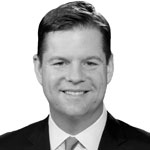As we prepare to head into 2018, I want to reflect on the past year.
PUBLIC SAFETY, HOMELESSNESS
Every day I hear from constituents about crime and public safety concerns. While violent crime continues to trend downward, we are unfortunately experiencing a spike in property and petty crime that negatively affects our quality of life. It seems like everyone has experienced a car break-in or knows someone who has. It is unacceptable.
Before I assumed office, City Hall did not fund a single new police academy class. Combine that historic lack of investment with record retirements and a growing population and you have a recipe for a crisis. Thankfully, I helped to secure funding for more new academy classes again this year to address our understaffed department and public safety needs.
While our police department continues to staff up, it is up to all of us to work together to improve public safety in our communities. In that vein, I hosted multiple neighborhood-specific public safety meetings across District 2 to connect our neighbors with our police department and other public safety personnel to discuss ways to deter crime, best practices, and how to keep our neighbors informed about recent crimes nearby. I also helped convene multiple smaller meetings with groups of neighbors. Please contact me or my office if you would like to participate in or set up one of the meetings.
Homelessness continues to be a top concern to residents and businesses. I have made it a top focus for my years as supervisor as well. In 2016, voters approved Proposition Q: Housing Not Tents, which I authored and was aimed at helping to move the homeless out of tents and into services, shelter, and housing. Close to a year after approval, I am proud to report that the measure is having a meaningful impact, as intended. Close to 200 Proposition Q notices have been issued and in most instances the individuals voluntarily accepted services, shelter, and housing — many for the first time. In the Mission, where the proposition was first piloted, 92 percent of those issued notices were connected to services, shelter, and housing.
To address our encampment and homelessness crisis, we need to continue to advocate for more new housing opportunities for the homeless, as well as known policies and programs for reducing homelessness. We cannot be afraid to cut what is not working, either. Earlier this year, I authored legislation directing our Department of Homelessness to create a new “Five-Year Plan” to reduce homelessness. The newly created Department of Homelessness and Supportive Housing just released its plan and the goals are ambitious. We’re seeking to cut chronic homelessness in half, end family homelessness by 2021, eliminate large encampments by 2019, and are on our way to eliminating veterans’ homelessness. There is clearly more to be done, and though it might not always feel like it — progress is being made.
WOMEN, AFFORDABLE INTERNET
Everyone deserves equal pay for equal work. For women across the country and here in San Francisco that is unfortunately not the case. One glaring reason is the problematic practice of using past salary history to set an employee’s wage.
On Equal Pay Day, April 4 — which represents how long women have to work into the year to earn the same pay as their male counterparts — I introduced my “Pay Parity” law to help level the playing field. The law bans employers from asking about previous salary, because studies have shown that when women are required to disclose past salary information, they often end up at a significant disadvantage compared to men. This policy will enable more fair salary and wage negotiations.
In addition to fighting for equal pay for women, our team is also fighting for more female representation in the public realm. We introduced legislation to make San Francisco the first city in the country to strive for a goal of 30 percent female representation in the public realm by 2020. To kick-start that goal, we introduced legislation to create and install a statue of San Francisco and international icon Maya Angelou. It is important to increase female representation, so we can visually show all of San Francisco that we are all created equally and deserve the right to be whomever we want to be.
Last, we continued to move forward one of the city’s largest public infrastructure projects that aims to connect all of San Francisco to fast and affordable Internet through the design and deployment of a citywide fiber network.
We introduced and approved multiple policies this year aimed at lowering the project cost and decreasing construction time and impacts in our neighborhoods. We also launched a citywide community group and a panel of academic, business, and privacy experts to inform the city on community priorities and answer key issues and questions. Most important, after more than nine months of work, Mayor Lee and I recently released the roadmap to make the project possible and we plan to start the procurement process in early 2018. The Internet should be viewed as a 21st-century utility, and as such, should be affordable and available to all of our residents and businesses. We’re now closer than ever to making that a reality.
LOOKING AHEAD TO 2018
For 2018, I plan to stay laser-focused on neighborhood issues, in particular public safety and homelessness. I will have more to announce soon on both fronts, but please know I will be fighting for more officers on our streets and more homes for the homeless. In addition, we’ll be able to provide more details on our citywide fiber project in the early part of next year as we finalize the design and strategy.
I am thankful for the progress we made together in 2017, and look forward to continuing that work throughout 2018!





